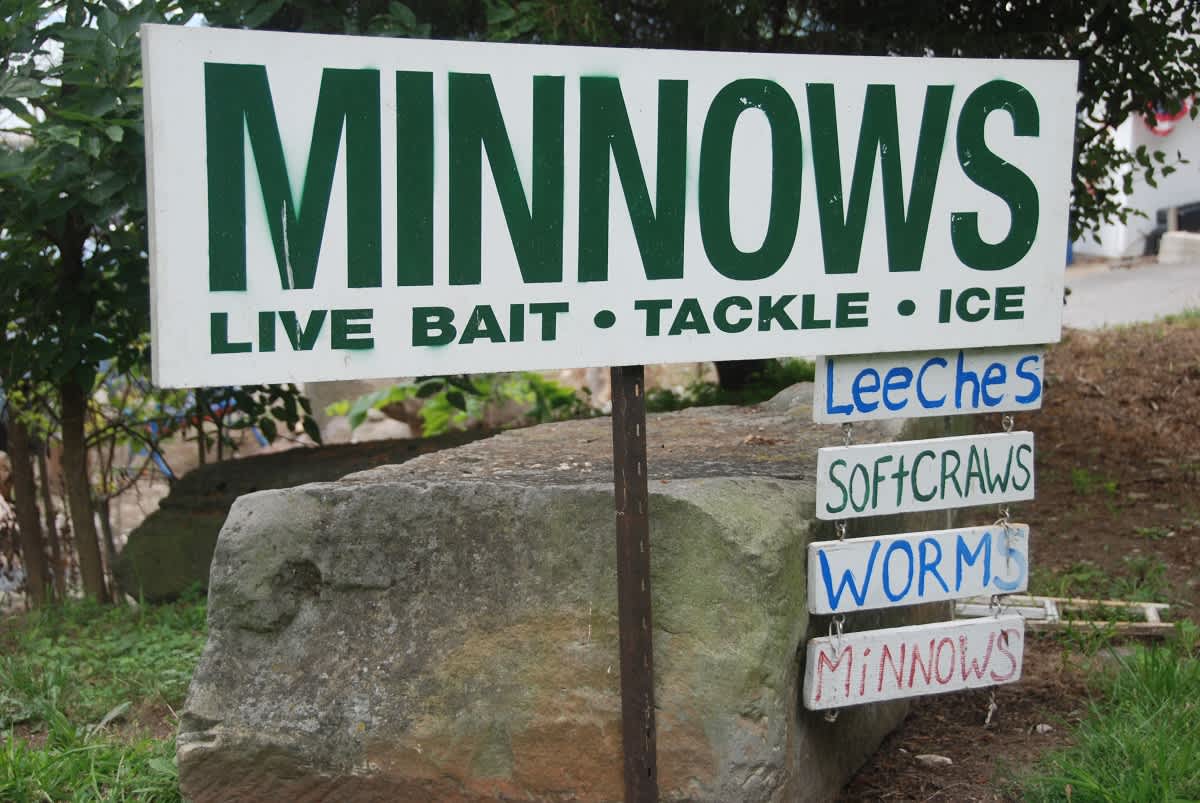Beating the Drum for the Bait Shop
Dan Armitage 05.09.14

The lake where I keep my boat docked was created as a water supply impoundment for the city in which I live, a local creek dammed the year I was born. The establishment of that reservoir six decades ago was responsible for my dad deciding to buy a boat instead of a set of golf clubs that spring, when the local paper announced that its pool had reached a level adequate for recreational boating and fishing. It’s also the responsible for guiding me to do what I do for a living today, writing about boats and fishing. At one time, the 3,300-acre impoundment was served by no fewer than five bait and tackle shops, which had established themselves in prime locations around the lake’s 45-mile shoreline and along the rural routes used by anglers to access the popular fishing destination.
Today, only one bait shop survives. It’s an example of a phenomenon occurring at an alarming rate from coast to coast.
The other bait and tackle shops have been forced out of business due to competition from Internet retailers, mail order catalogs, and “big box” outdoor stores that have moved into the area.
Live bait, such as minnows and worms, were never money-makers for these “mom and pop” shops, which survived on the fishing tackle their loyal bait-dunkers purchased when the anglers came in to buy their “minnies” by the dozens and dug worms by the 50-count tub.

When rod and reel and line and lure sales dried up due to the cut-rate prices offered by businesses able to buy their tackle by the truckload and pass the bulk-load discount along to local anglers, who didn’t even have to leave home to make their purchases, the bait shops went bust. Local fishermen took for granted that “Harry and Dot’s” (one of my local, long-gone favorites) would always be there, peddling the “minnies” and “soft craws” their once-loyal customers still required to catch fish with their discounted tackle.
It wasn’t until after the musty concrete bait tanks were drained and the battered screen doors shuttered for good that the fishermen realized that it wasn’t only live bait that was no longer available. Also missing was the firsthand information and advice that circulates around any working bait shop—about how, when, and where to use what to catch the fish that swim in those home waters just down the lane.
AWOL as well from all these failed bait and tackle businesses are the old guys who hang around such shops, and the kids they attract like flies listening for morsels of fishing information, the offer of a “boat-fishing” trip, or the occasional candy bar tossed their way by a geezer feeling generous. Missing from the online stores and sports marts are those crusty “regulars” whose mere presence promotes the camaraderie that evolves at places that sell stuff like hooks, bobbers, and lead sinkers by the piece below pegboard shelves holding dusty cards displaying decades-old flies and tarnished spinners.
While tackle shopping at a computer screen there’s never that underlying odor of anise, mildew, and ancient pipe tobacco I recall from busy Sunday mornings at Harry and Dot’s, hallowed ground to a ‘tweener bit by the fishing bug, where even during those rare moments between the bouts of bragging among customers coming and going, the place never went completely quiet—thanks to the faint gurgle of a minnow tank bubbling away somewhere behind the counter.
If your local lake still harbors a traditional bait and tackle shop, where you can expect to find everything from mousies and meal worms to someone willing to re-wrap a frayed line guide before six in the morning, consider yourself fortunate. Do yourself (and all fishermen in your wake) a favor this season by leaving with more than a few dozen fatheads and a Twinkie in your fist the next time that screen door slams you in the butt our your way out. That tackle you may have spent a few extra dollars for in the shop just might be worth gold down the line, when you need more than live bait to get you by.

